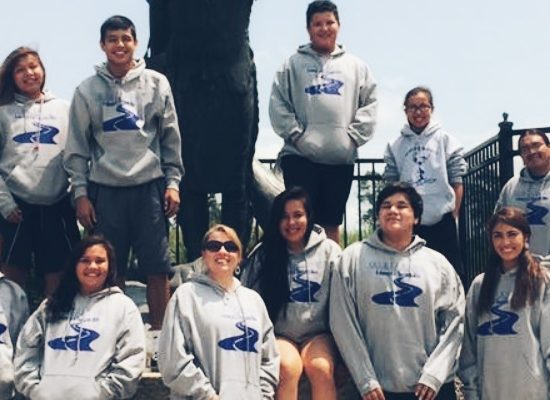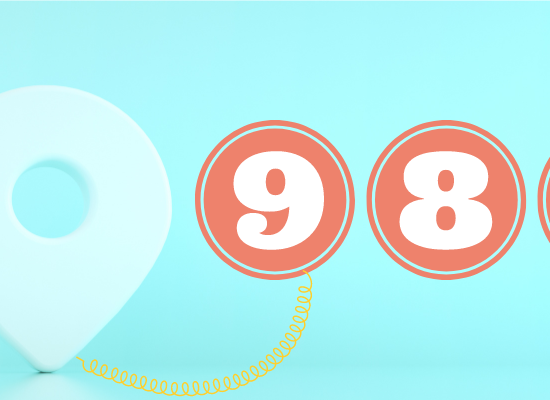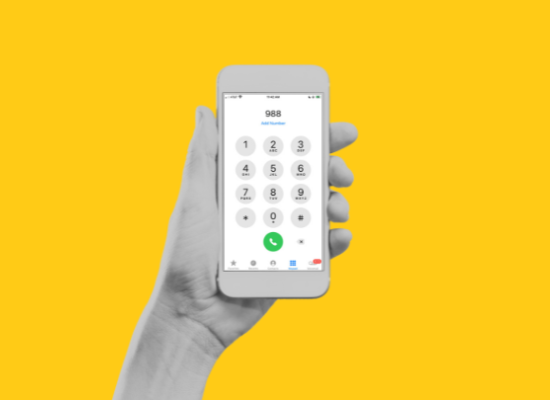
“Honestly, if I didn’t have these calls, I don’t know if I’d still be here,” a 27-year-old National Suicide Prevention Lifeline caller shared with a crisis worker at Common Ground Resource and Crisis Center.
The caller initially reached out to the Lifeline in 2021, contemplating suicide for the first time after experiencing an onset of a severe chronic health issue. Follow-up calls from the center supported her continued engagement with therapy and psychiatric services, helped her build coping mechanisms, engage with loved ones, and connect with others with similar experiences. She hasn’t experienced suicidal ideation in months.
Located in Pontiac, Michigan, Common Ground focuses on problem-solving and assertive crisis resolution strategies tailored to each caller’s specific needs. It provides trauma-informed, recovery-focused, face-to-face assessment, crisis intervention, and stabilization services to people, including children, 24 hours a day, seven days a week.
Elizabeth Kjar, former project director at Common Ground, was appointed to direct Common Ground’s new program, Follow-Up Connect. (A SAMHSA grant the center received to implement follow-up services funds the program.) The center’s interest in expanding follow-up services stemmed from witnessing the revolving door people experience when seeking care, including at hospitals, with law enforcement, and in the community.
Common Ground refers anyone at moderate or high risk for suicide—and who consents to participation—to the Follow-Up Connect team. Follow-Up is free and completely voluntary, and participants can opt-out anytime. Program components include:
- Assessing their safety and risk of suicide and suicidal ideation;
- Reducing lethal means access;
- Verifying and connecting people to resources; and
- Encouraging caller participation and engagement in their mental health wellness (ex., safety and treatment planning).
“An important focus of Follow-Up Connect is ensuring that the caller connects and has access to the right resources. Through regularly checking in with the caller, crisis workers get updates from the person, provide support to access resources, and encourage engagement in the community and with mental health resources,” Kjar shares.
Follow-Up includes a phone call, text, or chat from one of their crisis counselors at nine different points in time for up to a full year. These conversations enable the crisis workers to conduct assessments and mood checks, crisis intervention, review and update safety plans, check on how services are going, collaborate with the caller to problem solve and overcome barriers, and gauge their level of engagement in community supports.
Assessing the client’s engagement in services is integral to the program’s philosophy that people are experts in their own care. “We work to empower callers and help them engage in their care and well-being based on their unique needs,” noted Kjar. In addition, by providing individualized attention, the center improves callers’ experiences with resource accessibility related to social determinants of health and behavioral health services.
The key goals of the Follow-Up Connect program are to reduce interactions with law enforcement, visits to emergency departments, suicide attempts, and deaths by suicide. The center’s relationships with law enforcement and hospitals are integral to these efforts. These partnerships are particularly significant in addressing challenges local police departments have faced in providing appropriate services to callers with mental health and substance use needs.
As an established crisis center in the community, the police department sought the expertise of Common Ground to assist with behavioral health 911 callers. The police department reached out just as Common Ground was establishing Follow-Up Connect—and the follow-up services provided an excellent opportunity to develop a partnership to address mental health and substance use concerns.
The center developed a Memorandum of Understanding with the police department and provides special training for every police officer in the department on the resources available, how to recognize mental health and substance use issues beyond just suicidality, and how to make referrals to community services. When word spread, other police departments contacted Common Ground so they could also obtain the training and partner with the center.
Common Ground has engaged hospitals by illustrating how follow-up services can effectively reduce repeat users of emergency departments and result in other benefits. For example, Common Ground uses its existing relationship with emergency departments to train clinical assessment teams and educate hospital staff about its programs for future use.
“Law enforcement referred an individual who had been taken to a hospital to Common Ground’s Follow-Up Connect team. They later shared that the hospital has not seen the client for several months due to their engagement with Common Ground,” says Kjar. Examples like this highlight the benefits of collaboration between law enforcement, hospitals, and Common Ground.
A workgroup composed of Common Ground, the hospitals, and law enforcement hold monthly meetings to coordinate care in response to referrals. The three entities stay in constant communication to create warm hand-offs, smooth transitions, and address any barriers that arise. “Collaboration helps us avoid losing track of a person’s status—when law enforcement and hospitals are on board, we can reduce the likelihood that someone falls through the cracks,” Kjar adds.
The Follow-Up Connect team includes three behavioral health professionals, each with a bachelor’s degree and at least 95 hours of crisis intervention training. All team members make calls and utilize MSW interns, who are often later hired full-time at Common Ground. Some volunteers also make calls, but using volunteers can sometimes result in scheduling and consistency challenges.
“An added benefit to caller follow-up is that crisis workers see the process of someone’s journey beyond the crisis. The counselors are able to help and support the callers on their journey. It’s very rewarding for staff,” Kjar explains.
Of Common Ground callers referred to Follow-Up Connect, 60% stay enrolled. And of those people, 50% are engaged with Follow-Up Connect and their other community supports. This participation rate demonstrates the value of the resource, and many clients are accessing the referred services and staying engaged. Common Ground emphasizes the importance of follow-up services because they have shown effectiveness in significantly reducing suicides and psychiatric hospitalizations. In addition, they can increase motivation, reduce barriers to accessing services, and high participation in services that improve overall mental health and well-being.
When asked how follow-up services fit into the 988 crisis system, Kjar emphasizes they’re essential to helping a person feel cared for and connected to the community in which they live and are a critical part of the crisis care continuum. “988 works through the initial crisis and then refers the individual to resources in their own community,” she says. “Follow-up care facilitates this transition, ensures their connection with resources, and aligns the resources with the person’s needs, engaging them in their own care, problem-solving, and addressing any barriers.”








